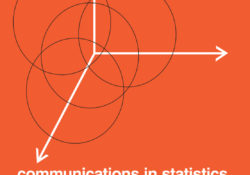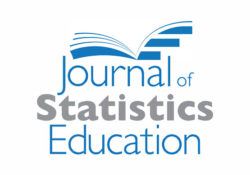tandfonline.com har udgivet en rapport under søgningen „Teacher Education Mathematics‟: Abstract Formulae display:?Mathematical formulae have been encoded as MathML and are displayed in this HTML version using MathJax in order to improve their display. Uncheck the box to turn MathJax off. This feature requires Javascript. Click on a formula to zoom. Abstract Categorical scale data are only ordinal and defined on a finite set. Continuous scale data are only ordinal and defined on a bounded interval. Due to that character, the statistical methods for scale data ought to be based on orders between outcomes only and not any metric involving distance measure. For simple two-sample scale data, variants of classical rank methods are suitable. For regression type of problems, there are known good generalized linear models for separate categories for… Continue Reading →
Like this:
Like Loading...
eric.ed.gov har udgivet: The aim of the study was to investigate the effect of Microsoft Math Tool (graphical calculator) on students‛ achievement in the linear function. The study employed Quasi-experimental research design (Pre-test Post-test two group designs). A total of ninety-eight (98) students were selected for the study from two different Senior High Schools (SHS) in Accra, Ghana. The two schools were categorized as control group of forty-eight (48) students and experimental group of fifty (50) students. The analysis of data was done using independent t-test with alpha value (a) = 0.05. Pre-test assessment conducted at the beginning of the study shown no significant difference, t (95.720) = -0.441, p = 0.660 between the control and experimental groups. This indicated that the two groups were homogeneous. The experimental group received… Continue Reading →
Like this:
Like Loading...
tandfonline.com har udgivet en rapport under søgningen „Teacher Education Mathematics‟: Abstract Formulae display:?Mathematical formulae have been encoded as MathML and are displayed in this HTML version using MathJax in order to improve their display. Uncheck the box to turn MathJax off. This feature requires Javascript. Click on a formula to zoom. Abstract Basic knowledge of ideas of causal inference can help students to think beyond data, that is, to think more clearly about the data generating process. Especially for (maybe big) observational data, qualitative assumptions are important for the conclusions drawn and interpretation of the quantitative results. Concepts of causal inference can also help to overcome the mantra “Correlation does not imply Causation.” To motivate and introduce causal inference in introductory statistics or data science courses, we use simulated data… Continue Reading →
Like this:
Like Loading...

